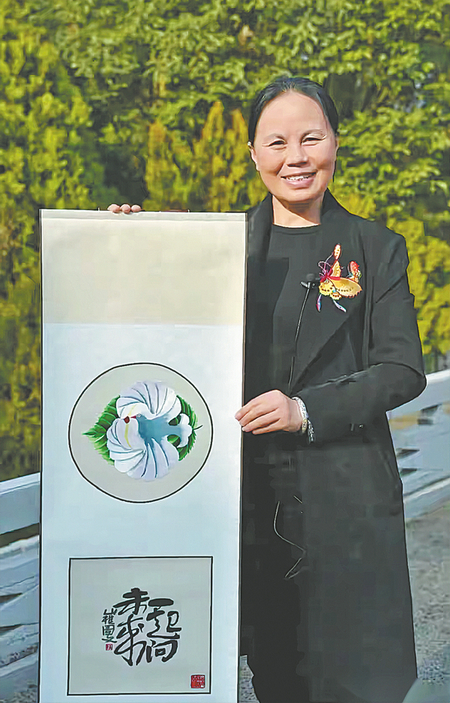Crafting specific proposals


Many of them try to combine their respective crafts with other industries. For example, Shi is exploring a combination of Miao embroidery and local medicine. She has rented an 18-hectare plot of land to cultivate medicinal plants, and plans to make Miao-style perfume sachets or pillows containing medicinal herbs. Song, meanwhile, is exploring avenues in fashion, developing cultural and creative products based on the embroidery style.
Development of cultural industries also helps to boost tourism, says Song, who notes that some young people visit Sandu county to enjoy the landscape and local Sui ethnic group culture.
Some of their motions to the NPC have been carried out. Yang says she proposed to specify that more developed cities provide partner assistance to Chishui, and in recent years, specific policies in industrial cooperation and talent cultivation have been carried out, making the assistance more effective.
This year, she proposed to build a high-speed railway between Luzhou city, Sichuan province, and Zunyi, so that local products can be transported to other places more easily.
"I have learned so many things since becoming a deputy to the NPC, and it has enhanced my sense of responsibility. I like to bring the voices of the grassroots to the two sessions (the annual sitting of China's national legislature and top political advisory body) and help people solve their problems," says Yang.
Song, on the other hand, feels "extremely happy" when recalling what she has done over the past four years. The horsetail embroidery, a tradition of the Sui ethnic group, once only survived within the boundaries of Sandu, where Sui people live, and it was extremely hard to introduce it to the outside world. But after being elected as a deputy to the NPC, she has helped to bring much more publicity to the craft, and local people who are engaged with the industry can earn much more money than before.
"Now our horsetail embroidery has built its own brand. I feel very pleased to see my efforts help spread the craft of our hometown, and increase the income of local people," says Song.
Her enthusiasm for traditional culture urged her to propose the speeding up of the world heritage application of shuishu, the written language of the Sui ethnic group, during this year's two sessions.
"As a pictographic language similar to Dongba writing (the writing used by the Naxi ethnic group), shuishu has a history of several thousand years. It is a calling card of the Sui ethnic group, and China," says Song.
On Jan 26, the State Council, China's Cabinet, issued a document to support Guizhou in forging a new path in its development, and, as such, Shi sees more opportunities in the future.
"Over the past four years, I have seen my efforts to promote Miao embroidery being supported by the country and society, which motivates me to continue, and gives me a lot of confidence.
"The issuing of the document makes me believe Guizhou is welcoming a new golden decade. I will focus on how to seize the opportunity," Shi says. "And I hope more people will be attracted to invest here."
Contact the writers at wangru1@chinadaily.com.cn




































